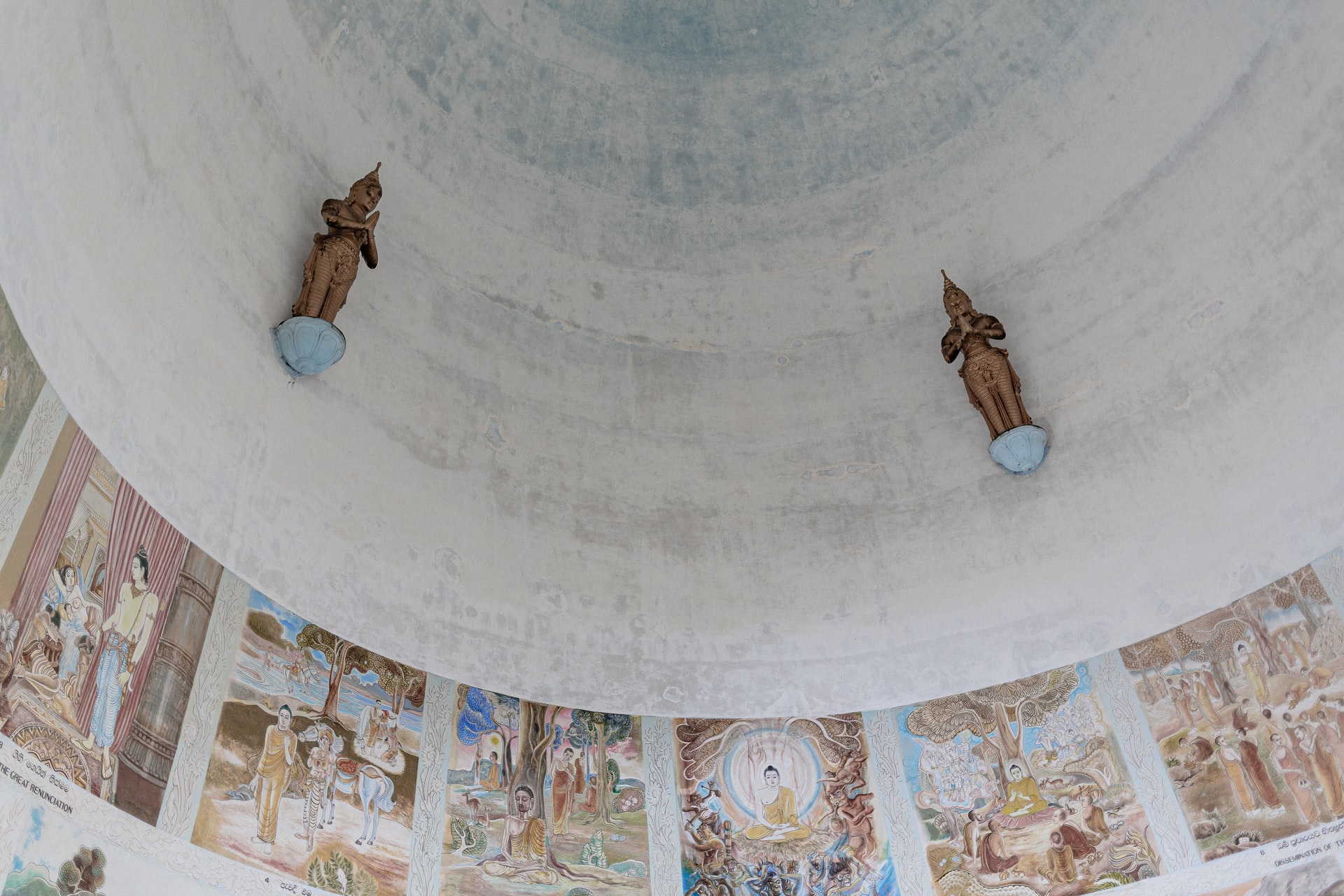The LSE Religion and Global Society Unit recently announced a £1.4 million grant from the Templeton Religion Trust to support research into religious pluralism. To further academic discussion around the topic, we have created a category on the blog that will host articles on “covenantal pluralism”. In this timely article based on his recent journal article, Robert Hefner charts the evolution of covenantal pluralism in Indonesia.

The ideal of covenantal pluralism is at once timely and challenging. It is timely because, after decades of policy briefs suggesting that free elections and civic participation are sufficient to bring about citizen equality, the struggle for a citizen inclusivity remains as daunting today as ever. The failure of all but one of the Arab uprisings, the ascendance of hardline variants of Hindutva nationalism in democratic India, and the growth of a racializing Christian nationalism in Western countries have all shown that received recipes for citizenship and democracy are wonting. The time seems right, then, for a new formula for living together in ethnoreligious difference, and that is what the idea of covenantal pluralism seeks to offer.
In his pioneering formulation of the concept, Chris Seiple has rightly observed that the concept of covenantal pluralism is more socially robust than the concept of tolerance. He writes, “Covenantal pluralism moves beyond mere diversity — living side-by-side without engaging one another — to a mutual pledge to engage, respect and protect each other, without necessarily lending moral equivalency to the other’s beliefs or behavior.” This is a powerful and timely ideal. However, in many national settings, the effort to realize this value may well encounter a serious challenge. As in the U.S., India, Indonesia, and other countries, many citizens may have no interest in covenantal pluralism’s promise of mutual respect and inclusivity. Many may regard the concept’s appeal to “engage, respect, and protect each other” across religious communities as inconsistent with their ethico-religious convictions. In such circumstances, we must ask, what is to be done?
The Muslim-majority country of Indonesia, where I have done research for more than three decades, has a history replete with examples of actors and movements promoting public ethics that conform to key portions of the covenantal pluralism ideal. Most of these proposals have been linked to Indonesia’s distinctive ideals of an inclusive multi-religious nationalism and, with it, a religiously undifferentiated citizenship. In Indonesia, however, efforts to realize this local variation on the covenantal pluralism ideal have repeatedly stumbled on the fact that a significant number of citizens prefer a religiously differentiated citizenship to a genuinely inclusive one.
Indonesia undertook a return to electoral democracy in 1998-1999, in the aftermath of a prodemocracy mobilization against the authoritarian president Suharto (r. 1966-1998). Although the coalition that ousted Suharto was ideologically varied, it enjoyed the support of large portions of the country’s mainline Muslim leadership. One of the factors that contributed to the successful reception of democratic ideals in the Muslim community was that for more than a decade many of the country’s most influential Muslim leaders had worked to convince their fellows that democracy and inclusive citizenship are compatible with Islam.
In the years following Suharto’s ouster, Indonesia initiated an array of political and legal reforms that seemed to suggest that this Indonesian variation on covenantal pluralism may have taken root in society. In its first two years, the government passed legislation expanding press freedoms, legalizing independent political parties, and launching a far-reaching program of administrative decentralization. The reform-era government also put in place policies designed to move the still-powerful armed forces out of politics. Between 2000 and 2002 the Muslim-dominated National Assembly rebuffed efforts by Islamist legislators to mandate the implementation of Islamic law. The effort foundered in part because of stiff opposition from the leadership of the country’s two huge mass-based Muslim organizations, the Muhammadiyah (30 million members) and the Nahdlatul Ulama (50-70 million).
Survey data in the early reform period confirmed that most of the Muslim public strongly agreed with the formal principles of democracy. However, on matters like inter-religious marriage or whether to allow non-Muslims to worship in Muslim neighborhoods, a significant proportion of the public was of a different mind. Rather than diminishing, exclusivist tensions of this sort increased in the more open environment of democratic Indonesia.
During these years, Islamists took advantage of new social media to challenge mainstream Muslim leaders promoting an inclusive understanding of Islamic ethics. Research during these years also showed that a large number of Muslim school teachers were conveying messages on Muslim supremacism at odds with the official educational curriculum. The results of the national and regional elections held every five years since 1999 indicate that only about 20% of the electorate favors parties advocating the establishment of a so-called Islamic state. But a growing number of Muslim citizens were coming to believe that in public life and national leadership, Muslims and Islam must still be given pride of place.
Article 29(2) of the Indonesian Constitution guarantees all citizens the freedom to worship in accordance with their religion (agama) and beliefs. But the state also reserves the right to limit religious freedom in the interest of public morals, religious values, and public order. More alarming yet from a covenantal pluralist perspective, the infringement of individual religious freedom is officially sanctioned where a minority group promotes a practice of religion at variance with the majority’s understanding of a proper profession of that religion. In a much discussed ruling in 2009, the Constitutional Court upheld Indonesia’s notoriously expansive “Blasphemy Law” (Law 1/PNPS/1965) on just these grounds. In this instance then, “public order” is defined on the basis of ethical majoritarianism, not a covenantal prioritization of equal rights and mutual recognition across religions.
These majoritarian currents came to a crescendo in 2016-2017, in the course of the gubernatorial campaign in the nation’s capital district of Jakarta. At a campaign rally on September 27, 2016, the Governor of Jakarta, Basuki Tjahaja Purnama (popularly known as Ahok), made an offhandedly dismissive reference to the al-Ma’ida 51 verse in the Qur’an, which counsels Muslim believers not to take Jews and Christians as leaders or friends. When Ahok’s political opponents learned of his comments, they posted a redacted video of his remarks on the web. This version of Ahok’s speech made it appear that the Governor was claiming that the Qur’anic verse itself was deliberately misleading. The once popular governor soon saw his public support tumble in the face of a huge Islamist mobilization. He went on to lose in the 2017 elections, and, two weeks later, was imprisoned on charges of having defamed Islam.
Whatever its electoral implications, the legacy of the Ahok crisis has worrying implications for efforts to strengthen covenantal pluralism in Indonesia. In a series of national surveys conducted prior to and after the anti-Ahok campaigns, the political scientists Marcus Mietzner, Burhanuddin Muhtadi, and Rizka Halida have measured public opinion among Muslim Indonesians. Their findings suggest that a full 1/3 of Indonesian Muslims hold views that are “very intolerant” and an additional 17% “intolerant” on such matters as non-Muslims hosting religious events or building places of worship in Muslim-majority neighborhoods. A full 52% of Muslims object to non-Muslims serving as high-ranking executives in government. These levels of intolerance toward non-Muslims are not exceptional by comparison with other Muslim-majority countries. Nor do they diverge all that greatly from reported levels of intolerance toward Muslims in Western countries. But these findings show that the trend toward greater tolerance once seen in this country is today in reverse.
As I argue in my recent article in The Review of Faith & International Affairs, Indonesia’s pluralist legacy has always fallen short of the full covenantal pluralist ideal. But this is part of the lesson to be learned from the Indonesian example: efforts to build an enduring covenantal pluralism can only succeed where they build on local traditions that give the ideals of citizen equality and mutual respect vernacular meaning and resonance. As legislation in the early post-Suharto period made clear, Indonesian reformists had for several years made headway in their efforts to advance a locally meaningful variety of covenantal pluralism. But one of the great ironies of Indonesia’s return to democracy has been that the opening of the public sphere has allowed majoritarian voices to be heard more loudly than ever. As in many other parts of the world today, democratic openness can provide new opportunities for majoritarian movements that place covenantal pluralism and equality low on their list of public ethical priorities.
Note: This piece gives the views of the author, and not the position of the LSE Religion and Global Society blog, nor of the London School of Economics.





